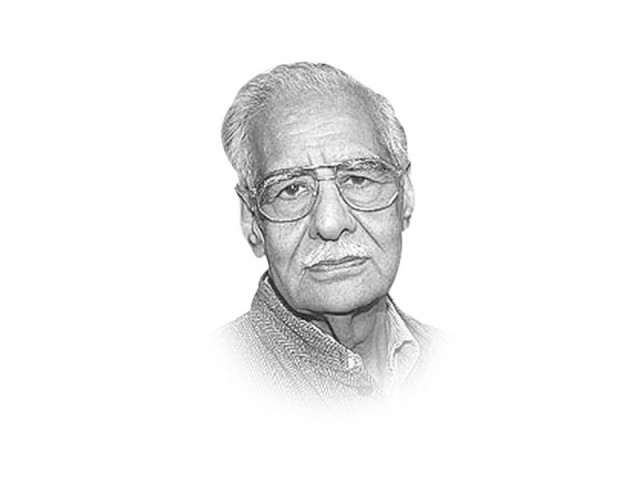Politicising of India’s Press Council
Justice Markandey Katju, the chairman of the Indian press council, has crossed swords with the Bharatiya Janata Party.

The writer is a syndicated columnist and a former member of India’s Rajya Sabha
Once politics comes in, there is no way to limit or eliminate it. Justice Markandey Katju, the chairman of the Indian press council, has crossed swords with the Bharatiya Janata Party (BJP), whose opposition leader, Sushma Swaraj, gave the approval as per rules for the constitution of the press council. The new controversy is over Gujarat Chief Minister Narendra Modi. In an article, Justice Katju has criticised Modi for the 2002 minority riots and has asked the country not to make the mistake which the Nazis did in 1933. In fact, the gauntlet thrown by Justice Katju has been picked up by the opposition leader in the Rajya Sabha, Arun Jaitley. He has said that “Justice Katju’s political bias is clear from the fact that on the burning of the Sabarmati Express in Godhra, he says there is still a mystery of what happened in Godhra. Is he trying to hold a brief for those convicted of setting the train on fire?” The Council, Justice Katju or Arun Jaitley cannot sort out this problem because it does not lie in the domain of the press.
In the dust that the controversy has raised, the Council’s working has come to be doubted and the importance of the chairman has got exaggerated. The adverse fallout is on the press, which the Council is supposed to serve by way of settling disputes among newspapers or their grievances against the state and central governments. The common man is also at a loose end because his complaint against a particular newspaper is either delayed or not taken up by the Council which is embroiled in politics.
The esteem which the government accords to the press council can be deduced from the fact that the Lok Sabha speaker himself nominated members of the first press council. It was laid down in the law that the Council would uphold the freedom of the press. The peers, journalists, would judge the peers’ violation of ethics.
It was made clear at the time of the legislation that the Council was not another law court. Yet, it would serve as a forum where the erring newspapers would be criticised, censured or sanctioned. The Council is a moral authority and, therefore, it has no teeth. To demand teeth, as chairman Justice Katju has done, is to negate the very purpose for which the Council was established.
One wishes that the chairman would stay within the limits of what the law lays down. No doubt, Justice Katju is an able person who once occupied the position of a Supreme Court judge with distinction. He has not, however, appreciated the inhibitions which he, as the Council’s chairman, has to face. Even his maiden speech at the Council showed contempt for journalists who, he said, were 90 per cent illiterate.
In fact, the office has never been politicised since independence, barring one occasion. That was during the emergency (1975-77) when Justice N Rajagopala Iyengar was the press council chairman. He became part of the censorship set-up, which the press council was expected to oppose, to uphold the freedom of the press. Justice Katju’s is a quasi-judicial position. He cannot afford to join issue with Jaitley and ask for his resignation because this is not his job. Nor can he can demand the resignation of an editor.
That Justice Katju is indiscreet is too mild a statement. At a seminar, he once said that to resolve the question of Kashmir, India and Pakistan would have to unite. Nobody took him seriously. Otherwise, his remark could have caused a lot of diplomatic embarrassment to New Delhi. Justice Katju would be well-advised to know the limits of his office and stay within its confines.
Published in The Express Tribune, February 28th, 2013.















COMMENTS
Comments are moderated and generally will be posted if they are on-topic and not abusive.
For more information, please see our Comments FAQ